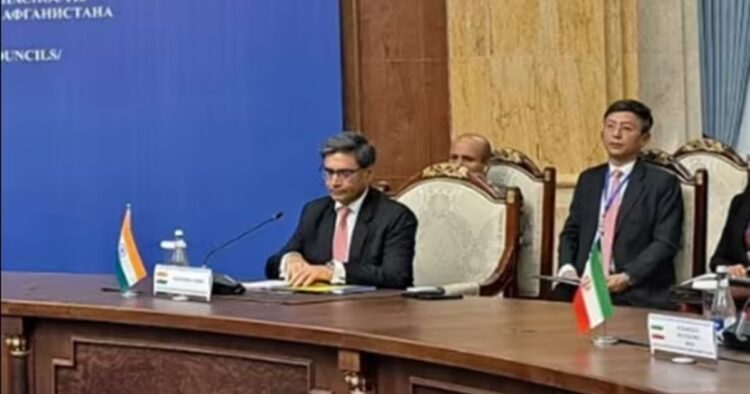Bharat concerns over the surge in drug shipments connected to Afghanistan and the potential for instability due to the presence of terrorists from banned groups like Lashkar-e-Taiba (LeT) and Jaish-e-Mohammed (JeM) were highlighted at a recent meeting of senior regional security officials.
Representing Bharat at the 6th regional dialogue in Bishkek, Kyrgyzstan, Deputy National Security Adviser Vikram Misri emphasized the alarming trend of large drug seizures and the need to address the use of Afghan soil for terrorist activities.
Misri stressed the importance of preventing Afghanistan from being a sanctuary for terrorists, especially those sanctioned by the UN Security Council, and underscored that instability in Afghanistan poses a threat to the entire region.
Bharat reaffirmed its significant stake in Afghanistan and advocated for a consensus-based approach at both regional and international levels to address common priorities, including humanitarian aid, forming an inclusive government in Kabul, countering terrorism and drug trafficking, and protecting the rights of vulnerable groups.
The Indian delegation highlighted its partnership with the UN Office on Drugs and Crime (UNODC) to provide humanitarian assistance, including hygiene kits, baby food, blankets, and medical aid, to individuals benefiting from drug rehabilitation programs in Afghanistan.
The regional dialogue serves as a crucial platform for assessing the situation in Afghanistan following the Taliban’s takeover in 2021. India, having hosted the 3rd regional security dialogue in New Delhi in November 2021, underscores the collaborative effort among member states.
A recent UN report noted the presence of multiple terrorist groups in Afghanistan, with the Islamic State-Khorasan Province (IS-KP) posing a significant threat. The report highlighted the close ties between the Taliban and al-Qaeda, raising concerns about regional security.
India reiterated its commitment to promoting peace, security, and stability in Afghanistan, emphasizing its legitimate economic and security interests as a neighboring country.
India’s extensive engagement in Afghanistan includes over 500 projects across all provinces, focusing on vital sectors such as power, water supply, healthcare, education, and agriculture. India’s contributions, including financial aid, wheat supply, medical assistance, and relief aid, demonstrate its commitment to supporting Afghan development.
Recognizing the importance of economic empowerment, India emphasized the need to create opportunities for self-reliance and rebuild Afghanistan’s economy. It encouraged Central Asian states to utilize Iran’s Chabahar port for maritime trade and sought international support to integrate Chabahar port into the International North-South Transport Corridor (INSTC).

















Comments